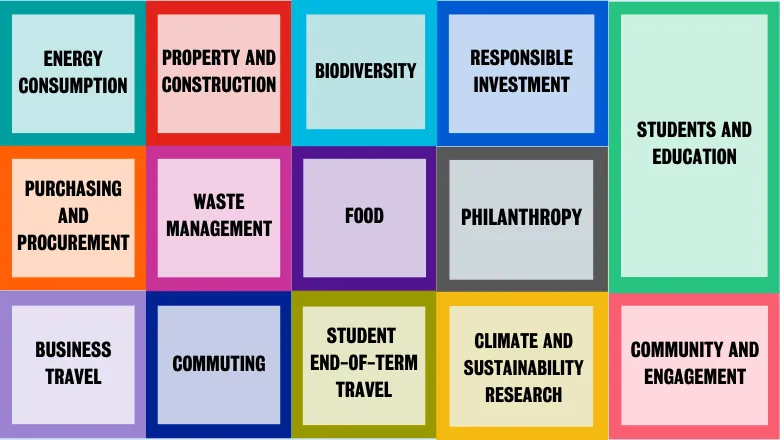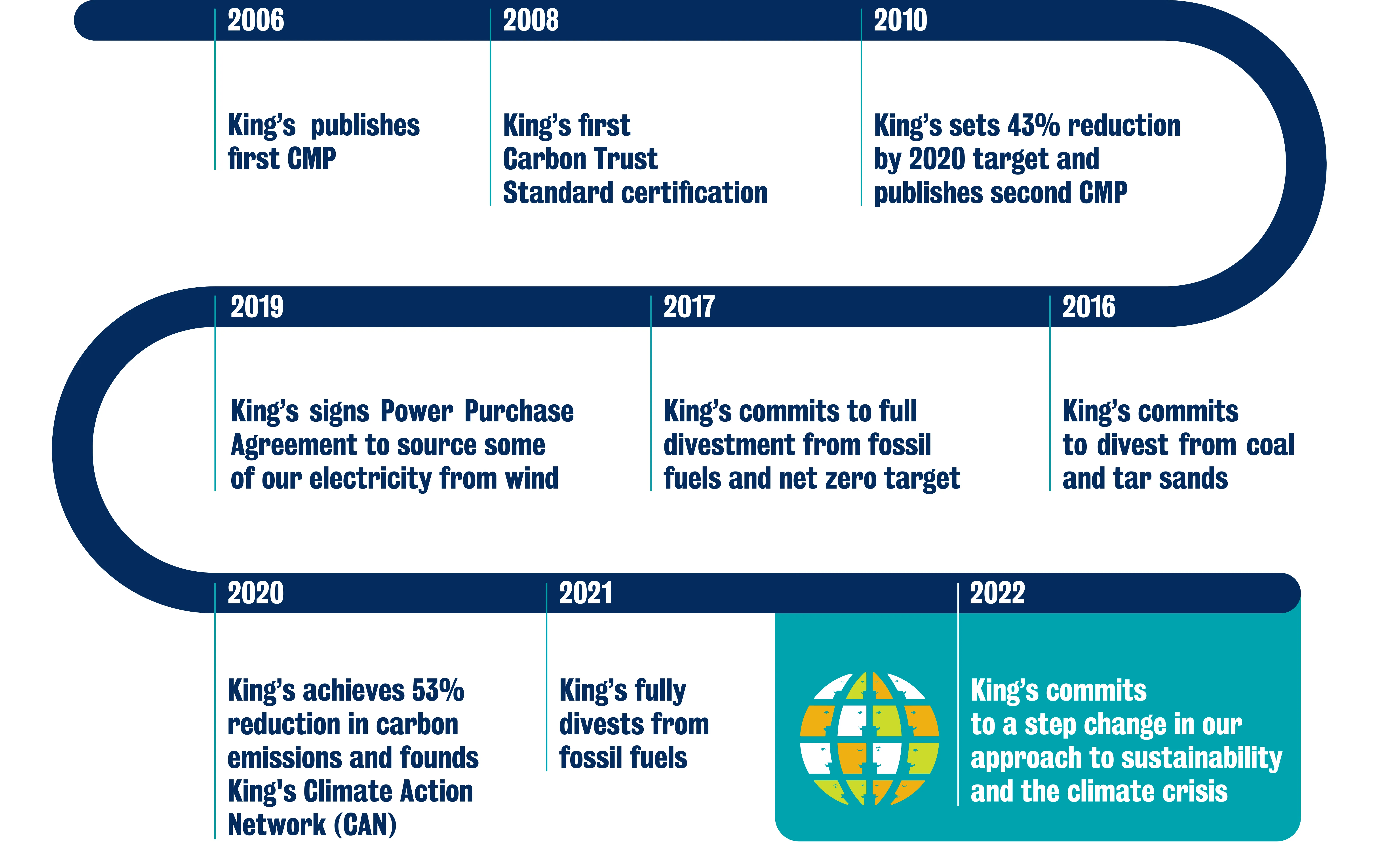Staff Sustainability Champions
Our Sustainability Champions work on campus and in residences to make...
Our Climate & Sustainability Action Plan (CSAP) sets out 14 key impact areas to guide the university’s approach to sustainability and climate change, informed by the United Nations Sustainable Development Goals (UN SDGs), which set targets for holistic and sustainable global development by 2030.
The CSAP was first published in February 2023 to set out our ambition to address sustainability and the climate emergency. In February 2024, we published a second iteration as part of an annual review undertaken in late 2023 and early 2024 managed by the King’s Climate & Sustainability team.
In June 2025, we published our Climate & Sustainability report 2023-24, which brings together for the first time our Climate & Sustainability Action Plan for 2024-25 and our Environmental Sustainability Report for 2023-24. From now on, we will publish one annual sustainability report on our practical action plans and transformation initiatives, including a core set of performance metrics which cover our progress across research, education and operations.
The CSAP's first iteration was developed by the King's Climate & Sustainability team in consultation with students, staff, alumni and members of King’s Climate Action Network (King’s CAN), key deliverables include:
The plan prioritises absolute reduction of carbon emissions over offsetting, which compensates for emissions by funding equivalent carbon dioxide savings elsewhere, and carbon removals, which includes natural strategies like tree restoration and agricultural soil management. That is why we have now set a 2030 net zero target to give us more time to focus and invest in direct emissions reductions on our estate and in our operations.

King’s has been taking action on climate and sustainability for many years. In 2021, we fully divested from investments in fossil fuels almost two years ahead of target and we have successfully reduced emissions under the university’s direct control by more than half in the last 15 years.
All of this happened while King's estate size was growing, and our student numbers and research volume was increasing.
It was achieved through actions such as improving energy efficiency and maximising space utilisation of our existing estate, as well as encouraging behaviour change through our Sustainability Champions programme.
Progress has been monitored across all sections of the CSAP and substantial advancements have been made in certain key areas, including establishing a thorough climate & sustainability governance structure with a Steering Group and a number of different Working Groups. Changes mostly focus on reorganisation and updating outdated target dates, and key changes include the introduction of a model for Education for Sustainability at King’s, updates to incorporate the ongoing sustainable travel policy review and the development of a net zero business case. The Carbon Sinks section has been renamed to Biodiversity and a new section on Philanthropy has been added. The carbon reduction targets have been moved into the relevant sections of the Actions Table for clarity. For transparency, a sticker has been used to indicate various major changes to this iteration of the CSAP.
Some targets in the CSAP were set for 2022-23. Where the target has been met, the action has been updated. Where the target has not yet been met but is still relevant, the date has been updated to this academic year or a more realistic timeframe. These challenges will be further discussed in our 2024 reporting. Some additional targets have been added and/or achieved due to the nature of this fast-changing environment.
King’s key targets (including emissions, water and waste reduction) remain a priority area of focus and are due to undergo a thorough review and analysis in 2024-25 to assess whether we remain on track to meet our ambitions, followed by a regular review of the overall net-zero targets for the University. The development of the net zero business case in 2024-25 as well as the work by the newly created Carbon Offsetting Group to develop a reliable approach to carbon offsetting for the organisation will also bear an impact on this.

As a signatory to the global Race to Zero for Universities and Colleges, we will continue to make a difference through our supply chain and investments, by engaging our community in behaviour change and through the work we collectively do to achieve our sustainability targets.
Find out more about King's Climate & Sustainability governance
Our Sustainability Champions work on campus and in residences to make...
A community of students and staff who are passionate about sustainability
Learn about how you can be more sustainable within and beyond King's
Learn more about how you can join in and take action
Enabling societal transition to environmental sustainability is a...
Building sustainability into King’s actions and operations
Learn about how you can be more sustainable within and beyond King's